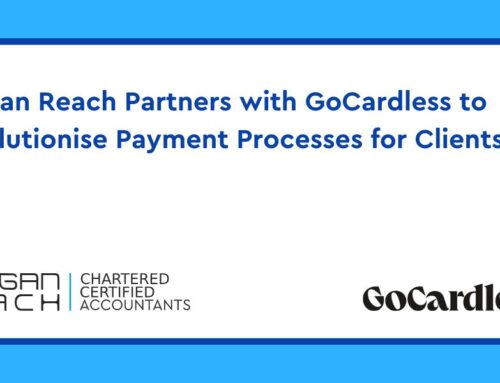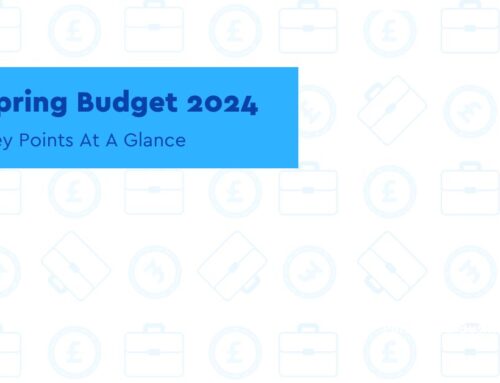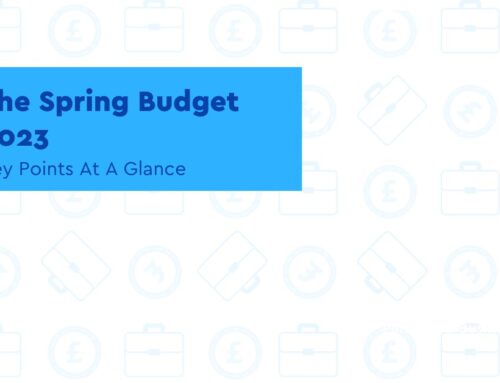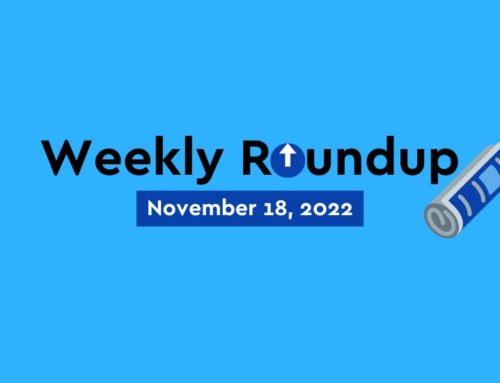News – Autumn Budget
October 27, 2022
Key Points
- The full “autumn statement” will be delivered by chancellor Jeremy Hunt
- It will be accompanied by separate forecasts from the Office for Budget Responsibility
New prime minister Rishi Sunak has pushed back the government’s planned fiscal statement until November 17.
The spending plan, to get the public finances back on track, had been previously slated for October 31.
The full “autumn statement” will be delivered by chancellor Jeremy Hunt and accompanied by separate forecasts from the Office for Budget Responsibility (OBR).
The Chancellor has already revealed a few measures ahead of the plan, reversing many decisions made by his predecessor, Kwasi Kwarteng, in the September mini-budget.
He confirmed that “more difficult decisions” would come in an effort to protect the economy.
However, following Rishi Sunak’s appointment as Prime Minister, Hunt says that delaying the statement to November will allow it to be based on the “most accurate” economic conditions.
According to the Treasury, the new economic plan will “put public spending on a sustainable footing, get debt falling and restore stability.”
In his speech on Wednesday (26 October), the Chancellor said:
“Our number one priority is economic stability and restoring confidence that the United Kingdom is a country that pays its way, and for that reason, the medium-term fiscal plan is extremely important.
“I want to confirm that it will demonstrate debt falling over the medium term.”
“The autumn statement will set out how we will put public finances on a sustainable footing and get debt falling in the medium term and will be accompanied by a full forecast from the Office for Budget Responsibility.”
The Chancellor added he discussed the move with Bank of England governor Andrew Bailey, adding he (Bailey) “understands the reasons for doing that and I’ll continue to work very closely with him”.
The former government under Truss had been forced to bring forward the publication of the fiscal plan in the wake of the turmoil which erupted after then Chancellor Kwarteng’s now-scrapped mini-budget tax cuts.
News – Employer
Reduction in the rate of NICs and reversal of the Health and Social Care Levy — employer actions
Key Points
- HMRC emailed employers on their database to make sure they awareness of the key changes
- They asked employers to remove the temporary generic message on payslips for the 2022/23 tax year
On September 22, 2022 the government announced in-year reductions to National Insurance rates and the cancellation of the Health and Social Care Levy as a separate tax.
HMRC emailed employers on their database to make sure they awareness of the key changes, which are:
- National Insurance contributions rates will be cut by 1.25 percentage points for employees, employers and the self-employed, effectively reversing the uplift introduced in April 2022 for the rest of the tax year – this cut will take effect from 6 November 2022 and it will cover Class 1, (both employee and employer), Class 1A, Class 1B and Class 4 (self-employed) National Insurance contributions
- The ringfenced Health and Social Care Levy of 1.25% due to be introduced from April 2023 will not go ahead
HMRC also asked employers to remove (from November 6, 2022) the temporary generic message on payslips for the tax year (2022 to 2023) explaining the National Insurance contributions uplift, and confirmed full detail on all the changes would be published on GOV.UK in due course.
In their recent bulletin, the tax authority also wanted to take the opportunity now to remind employers to make the necessary changes to be ready for the November 2022 payroll, even in realising the timeline is tight and some employers may face challenges in implementing the changes in time. They will be directing employees to their employers to correct any overpaid National Insurance contributions in the first instance. Where needed, employers can then make corrections by submitting a revised Full Payment Submission (FPS).
On September 22, 2022, payroll software developers were made aware of the actions they need to take and provided with the relevant technical documents to facilitate software changes. Employers should therefore contact your payroll software developer initially with any queries. Always make sure that you are using the latest version of your payroll software.
HMRC’s Basic PAYE Tools will also be updated to calculate the correct National Insurance contributions from November 6, 2022 and therefore if you are a user of Basic PAYE Tools, you should make sure you install this new update, which will be available to download from November 4.
For any employee payments due on or after November 6, 2022, you must be using Basic PAYE Tools version 22.2 (or later). The version number appears in the bottom left-hand corner of the Basic PAYE Tools screen. You can download Basic PAYE Tools from GOV.UK where you will also find comprehensive help on installing this software.
News – PAYE
Guidance for employers on reporting PAYE information in real time when payments are made early at Christmas
Key Points
- The tax authority is aware some employers pay their employees earlier than usual over the Christmas period
- This can be because the business may close, meaning workers need to be paid earlier than normal
In 2019, HMRC introduced a permanent easement on reporting PAYE information in real time.
The tax authority is aware some employers pay their employees earlier than usual over the Christmas period. This can be for a number of reasons; for example, during the Christmas period the business may close, meaning workers need to be paid earlier than normal.
If you do pay early over the Christmas period, report your normal (or contractual) payday as the payment date on your Full Payment Submission (FPS) and make sure that the FPS is submitted on or before this date.
For example, if you pay on Friday December 16, 2022, but the normal (or contractual) payment date is Friday December 30, 2022, report the payment date on the FPS as December 30 and make sure the submission is sent on or before December 30.
Doing this will help to protect your employees’ eligibility for Universal Credit, as reporting the payday as the payment date may affect current and future entitlements.
The overriding PAYE reporting obligation for employers is unaffected by this announcement and remains that you must report payments on or before the date the employee is paid, that is their payday.
News – Inflation
Inflation rises to 10.1% in September
Key Points
- This is up from 9.9% in August, and sees a return to the recent 40-year high witnessed in July
- The rise in inflation was partially offset by a continued decrease in petrol and diesel fuel prices
The inflation rate hit 10.1% in the 12 months to September, according to new data from the Office for National Statistics (ONS).
This is up from 9.9% in August, and sees a return to the recent 40-year high witnessed in July.
One of the biggest contributors to the rise in inflation rate in September was a 9.3% increase in housing and household services costs. This was mostly fueled by housing costs, private rents, and soaring energy prices.
A significant increase in food and drink costs heavily affected inflation, with prices rising by 14.6% in the 12 months to September, compared to only 13.1% in August.
The inflation rate for this category has continued to rise for the last 14 consecutive months.
The rise in inflation was partially offset by a continued decrease in petrol and diesel fuel prices. Fuel prices increased by 26.5% in the year to September, compared to 32.1% in August.
Head of research at the British Chambers of Commerce, David Bharier, said:
“Businesses will need to see a clear long-term economic plan to provide a stable environment to invest, alongside specific measures that relieve unprecedented inflationary pressures.”
Decision tool and calculator for the 130% super-deduction and the 50% special rate capital allowances
HMRC has published an interactive tool to help companies check if they can claim for the super-deduction of up to 130% or the 50% special rate first year allowances for qualifying expenditure on plant and machinery.
The tool is available in the HMRC customer guidance for super-deductions and special rate allowances. It helps companies find out if capital expenditure may qualify and calculates how much they may be able to claim.
Only companies can claim these allowances. The allowances are for qualifying expenditure on new and unused plant and machinery. They are for expenditure on or after April 1, 2021, up to and including March 31, 2023.
Old MTD for VAT portal to close
From Tuesday November 1, customers will no longer be able to access their existing VAT online account to submit their monthly or quarterly returns.
Instead, they will need to keep digital VAT records and submit returns using MTD-compatible software – unless HMRC has said they are exempt.
The aim of this new process is to make it easier and more efficient for customers to submit accurate tax returns.
Signing up for MTD and finding compatible software is now required by law, and any VAT-registered businesses not signed up in time will risk penalties.
Over 1.8 million customers are already using the service, while new businesses will be automatically signed up for MTD when registering for VAT, making them compliant from day one.
MTD will also be extended to income tax self-assessments from April 2024 and then followed by corporation tax by 2026 at the earliest.
Get In Touch
At Morgan Reach, we understand every business needs a little help now and again-especially when it comes to the financial side of things. Therefore, to help our clients and visitors we endeavour to cover as much of the business news as possible. If you are self-employed or run a business and need assistance and advice on how these news could make a difference to you or your business, feel free to get in touch with the experts at Morgan Reach. Our business growth experts at Morgan Reach will guide you through what support is available for you or your business as well as the latest news that may affect you.







